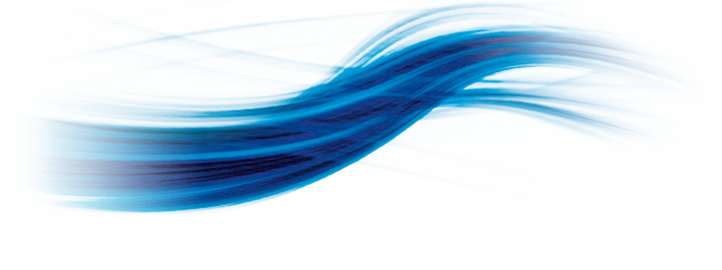Efficiency is a multifaceted topic. Duden, Germany’s leading dictionary, equates the word with “effectiveness and profitability”. According to Wikipedia, it is the “ability to avoid wasting materials, energy, efforts, money, and time in doing something or in producing a desired result” and BusinessDictionary.com defines it as “the comparison of what is actually produced or performed with what can be achieved with the same consumption of resources (money, time, labour, etc.)”. HF Mixing Together asked some HF MIXING GROUP customers outside of Germany what efficiency means to them and how efficiently they make their processes and products. The result: nearly all manufacturers in the rubber processing industry have already considered the question – and most of them started doing so long before yesterday. But just as the definitions of “efficiency” vary from one dictionary to another, so do the companies’ interpretations.
Minimal waste of time and energy
NUVO, a leading South African rubber compounder, defines efficiency in production as the ability to manufacture high-quality mixtures with minimal waste of time and energy. “Our F305 Banbury® mixer is equipped with the latest HF MIXING GROUP rotor technology, 4-wing NST, which ensures that the mixer delivers optimal performance”, explains Dr Donal Ryan, head of engineering at NUVO. “In combination with our Rubber Process Analyzer (RPA Montech 3000), we conduct detailed analyses for all of our compounds, in order to use the best process regarding an optimisation of the parameters. That analysis always ensures the most energy-efficient process with optimal properties. In addition, the drive technology of the F305 reduces energy consumption by at least 10% as compared to earlier Banbury® models, which likewise helps to decrease our carbon footprint, of course.”
Simplification of the processing
For NUVO, efficiency is also an important topic with regard to its products. The company aims to produce the best mixtures at all times. “Rather than merely fulfilling our customers’ expectations, we always want to exceed them”, says Ryan. “That’s why product properties and efficiency are of crucial importance to us, and we work continuously to improve our mixtures, in order to optimise their properties for the intended purpose. In this way, we develop new formulations which minimise energy losses in applications such as conveyor belts. Moreover, we optimise the production efficiency of our customers’ plants by simplifying processing conditions.”
Consistent employee development and economical machinery
Michelin extends the notion of efficiency even further. Europe’s biggest tyre manufacturer considers efficiency in every aspect of the production process: from the suppliers to the raw materials, machinery and manufacturing steps, right through to personnel, everything has been streamlined for maximum efficiency. One of their main goals here is to improve the performance of employees and machinery, and another is to conserve resources. Michelin accomplishes this not only through the use of many lean management methods and continuous employee development in all areas. “For many years now, we have been using a corporation-wide idea management system”, says Olivier Damon. “This is a powerful incentive system, through which we receive thousands of ideas every year, including very many for improving efficiency.” With regard to the profitability of outsourced machinery, the Head of Worldwide Purchasing at Michelin sees increasing potential. “We expect efficient retooling times from our suppliers. Information about the overall operating costs of the products is similarly important to us. We’re perfectly willing to accept higher purchase prices if the operating costs are lower in the long term, thereby making the machinery more efficient. The price differential must add value!”
Positive interaction of many factors
Comet SRL, an Italian compounder that produces mixtures for all industrial applications, views the interaction of the right machinery, a sophisticated automation system and a highly trained workforce as the best means of guaranteeing efficient processes. Other key factors include regular maintenance and a state-of-the-art process monitoring system which continuously checks and stores all parameters and also displays them in a user-friendly format. Comet is convinced that efficiency also has a lot to do with continuing education and job satisfaction, clean and safe working conditions and well-established processes. “With regard to our products, efficiency begins right with the raw material suppliers”, says Giancarlo Duina, Plant Manager at Comet. “We expect them to provide standardised materials which are stored in facilities ensuring the right conditions for their respective properties, i.e. the optimal temperature and appropriate relative humidity. Because we, too, must always provide mixtures of consistent quality to our customers. And at the end of the chain, suitable packaging also helps to optimise efficiency.”
Lean production system
TOVO GOMMA SRL also emphasises the role of raw material for efficient processes. Along with this, the manufacturer specialising in the production of rubber blends, sheets and cellular rubber focuses on highly standardised processes, low variability and the reduction of scrap. In order to make their production as efficient as possible, the company has already been using a lean production system for many years now. “In this overall system, the efficiency of the equipment – especially the mixer – plays a huge role, of course”, explains Andrea Contri, Chief Engineer at TOVO GOMMA. “Important factors here include the shortening of mixing cycles, the regulation of temperature and an efficient process monitoring system. Short retooling times and downtimes also contribute to efficiency.”
Robert Dodd, president of Airboss, one of the leading compounders in North America, sums up efficiency very succinctly: “Efficiency in production means maximum throughput in pounds per hour. Efficient products are the ones that promise the best value in the industry.”



